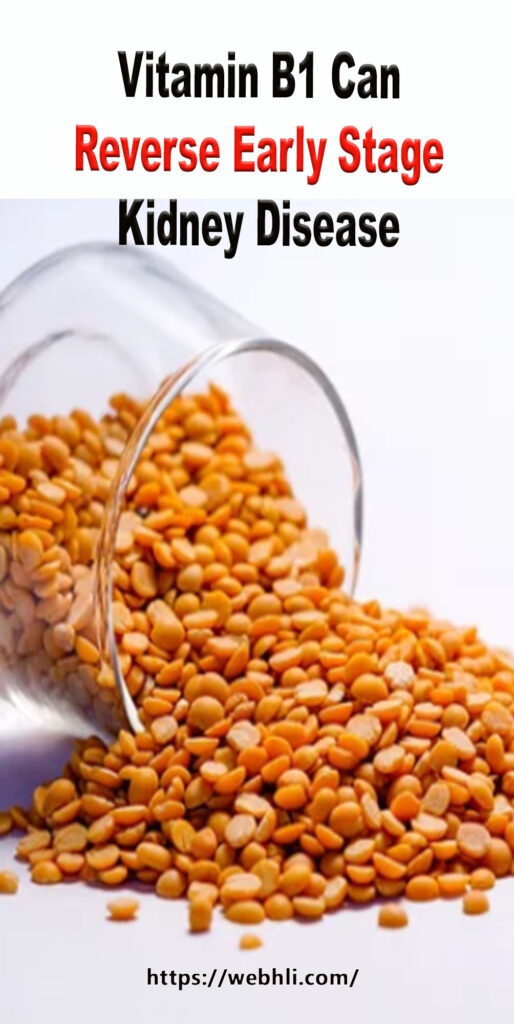
This may not be at the top of your list, but you will soon realize just how vital this is in preventing kidney damage. Vitamin B1, also known as thiamine, has been found to be an effective natural element that can reverse the early stage of kidney disease. It does sound surprising since this is readily available - being over the counter and affordable too.
Good Energy Food for Diabetics
10 Simple Food Concepts Every Person Living With Diabetes Should Know
Making Cheesecake For Diabetics
Enjoy the Taste and Benefits of Diabetic Foods
Will The Mulberry Leaf Help Your Diabetes?
5 DIABETIC FRIENDLY SALADS Some Tasty
DIABETIC LEMON COCONUT COOKIES Some Tasty
50 Healthy Diabetic Recipes That Are The Best
People who suffer from diabetes for longer than 15 years eventually develop kidney diseases, or what is called diabetic nephropathy. A common symptom of this is microalbuminuria which is protein in the urine. Researchers in 2008 found that vitamin B1 can actually lower this symptom by 41 percent. The study revealed that those who develop diabetes have the lowest levels of thiamine intake. The study did not include age as one of its variables. On adolescents, meanwhile, low levels of this lead to high blood sugar and hypertension. The study was led by doctors Naila Rabbani and Professor Paul Thronalley at the Warwick Medical School. The scientists found out that taking high doses of thiamine decreases the albumin in the urine and eventually reverse diabetic nephropathy in patients.
What is vitamin B1?
Thiamine is one of the 8 B1 vitamins that help the body covert the carbohydrates in food into fuel or glucose, when then produces energy. It also helps the body metabolize fats and protein, keeps the skin, hair, eyes and liver healthy, and aids in the proper functioning of the nervous system. Thiamine is also commonly called the anti-stress vitamin as it strengthens the immune system.
It is water-soluble and can be found in both plants and animals. While it is rare to be deficient in this, those undergoing kidney dialysis, have Crohn's disease, are alcoholics or suffer from anorexia may be deficient. Heavy drinkers of coffee and tea also have increased risk of deficiency because these beverages are diuretics. Need for this vitamin is also increased by chronic stress, diarrhea, fever and smoking.
Check out these related articles, too:
What You Should Look Out For For Kidney Failure Symptoms?
Kidney Failure Treatment Without Dialysis
Kidney Diet Secrets That Can Reverse Chronic Kidney Failure
The Effects of High Potassium For Kidney
What Is A Healthy Kidney Diet Plan
Diet Tips For People With Diabetes and Kidney Disease
Are Renal Insufficiency And Kidney Failure The Same Thing
5 Natural Supplements For Chronic Kidney Disease
Bitter Melon Recipe For Diabetes
Symptoms of Deficiency:
- Fatigue
- Irritability
- Depression
- Abdominal discomfort
- Trouble in digesting carbohydrates
Here are the top 10 sources of vitamin B1 as ranked by the World's Healthiest Foods:
- Asparagus
- Tuna
- Green Peas
- Ground flax seeds
- Spinach
- Brussels Sprouts
- Crimini mushrooms
- Sunflower seeds
- Navy Beans
- Black Beans
Other sources are pork, organ meats, cereals and rice, wheat germ, brewer's yeast and blackstrap molasses. It can be found in multivitamins or sold by itself and may take the forms of tablets, soft gels and lozenges.
Article Source: http://EzineArticles.com/8233259



 Protected by Patchstack
Protected by Patchstack